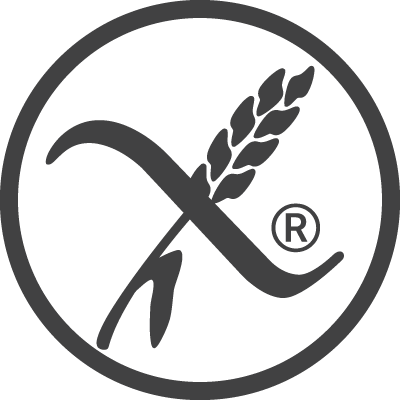Knowledge base - IBS - irritable bowel syndrome

IBS - irritable bowel syndrome
Irritable bowel syndrome (IBS) is a common functional bowel disorder that causes abdominal symptoms. There is no cure, but symptoms can be effectively treated and managed.
Both IBS and celiac disease are common gastrointestinal conditions that can cause similar symptoms. However, it is important to distinguish between the two conditions as their treatment and long-term prognosis differ significantly.
- Distinguishing between IBS and celiac disease >>
- Impact on everyday life >>
- Heredity of IBS >>
- Treatment of irritable bowel syndrome >>
- Gluten-free diet and IBS >>
Distinguishing between IBS and celiac disease
In order to treat irritable bowel syndrome and celiac disease, it is necessary to distinguish between these two conditions, which often have similar symptoms. Common to both celiac disease and IBS are the frequent symptoms of abdominal pain, bloating and various digestive problems. However, the symptoms are very individual and it is advisable to consult a doctor for a diagnosis.
According to the ibd.fi website maintained by the IBD and other bowel diseases association, the cause of the syndrome is currently unknown. The symptoms of irritable bowel syndrome are often caused by carbohydrates in so-called FODMAP foods, while the gut-damaging symptoms of celiac disease are caused by gluten, a protein found in certain cereals.
Celiac disease is classified as an autoimmune disease and there is a blood test-based diagnostic method for its detection. Celiac disease is often associated with an immune reaction to gluten, a protein found in wheat, barley and rye. IBS, which is classified as an intestinal disorder, has no corresponding immune reaction and no organic defect that can be detected by a specific test. The diagnosis of IBS is made on the basis of symptoms and medical examinations. Other diseases such as celiac disease and inflammatory bowel disease, as well as colon cancer, must be ruled out.
The impact of irritable bowel syndrome on everyday life
IBS is a common condition that can significantly reduce quality of life and affect many aspects of daily life. In an article published in Duodecim, registered dietitians Reija Männikkö and Anne Antikainen estimate that IBS affects at least 10-15% of the population, with women more likely to suffer from the condition than men.
Symptoms such as abdominal pain, bloating, diarrhoea and constipation can limit physical activity, travel and social activities. An article in the Health Library states that the severity of symptoms ranges from mild to very severe, with significant impact on quality of life. IBS can also cause anxiety, depression and feelings of low self-esteem.
The impact of IBS on daily life varies from person to person. Some people experience only mild symptoms, while others experience significant challenges. It is important to seek help and treatment to manage IBS and improve quality of life.
Heredity of IBS
Irritable bowel syndrome, like celiac disease, has a hereditary component. If one or more family members have been diagnosed with IBS, the risk of developing the disease is slightly higher. However, compared to celiac disease, the hereditary risk is lower.
A genetic predisposition and environmental factors, such as gluten intake, are required for the development of celiac disease. The development of IBS is likely to be influenced by complex hereditary and environmental factors.
Treatment of irritable bowel syndrome
According to Männikko and Antikainen, there is no cure for irritable bowel syndrome. The symptoms can be alleviated through lifestyle choices such as diet, exercise and stress management, as well as adequate recovery and sleep.
The aim of nutritional therapy is to reduce and alleviate symptoms and thus improve quality of life. It also ensures that the diet remains nutritionally adequate and easy to follow.
Elimination therapy
In the treatment of irritable bowel syndrome (IBS), elimination therapy involves removing certain foods from the diet for a period of time to identify which foods are triggering the symptoms. The eliminated foods are then added back into the diet one by one to identify the triggers of the symptoms.
Elimination therapy can be an effective way to identify the foods that cause IBS symptoms and relieve symptoms. However, it is important to do it correctly and under the guidance of a dietitian. Adequate fibre intake supports gut health and can ease symptoms. For people with irritable bowel syndrome, soluble fibre is often more suitable than insoluble fibre.
Restricting foods and drinks high in FODMAP carbohydrates often helps relieve symptoms of irritable bowel syndrome. Typical symptomatic foods include rye, wheat and barley, onions, stone fruits and xylitol products.
Gluten-free diet and IBS
The Coeliac Society website states that the main reasons for following a gluten-free diet are celiac disease and cereal allergy. A gluten-free diet can also help people with conditions such as inflammatory bowel disease (IBD) or irritable bowel syndrome (IBS).
A gluten-free diet should not be started as an experiment, for example to relieve intestinal symptoms, before a medical examination to rule out other possible diseases such as celiac disease.
For more information on IBS, see the following sources:
- IBD and other bowel diseases: irritable bowel syndrome (IBS)
- Health Library: Nutritional management of irritable bowel syndrome
- Coeliac Society: gluten-free diet




